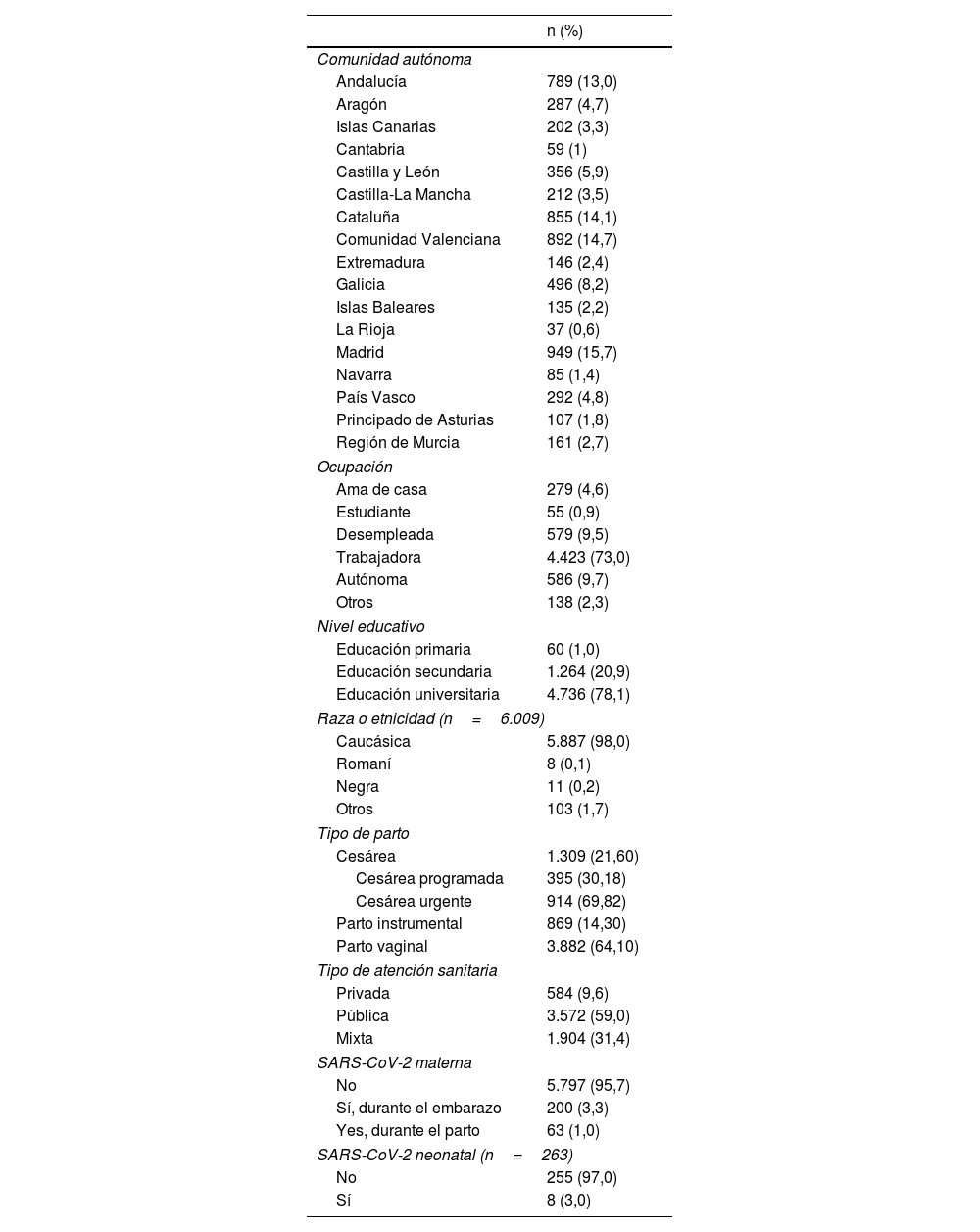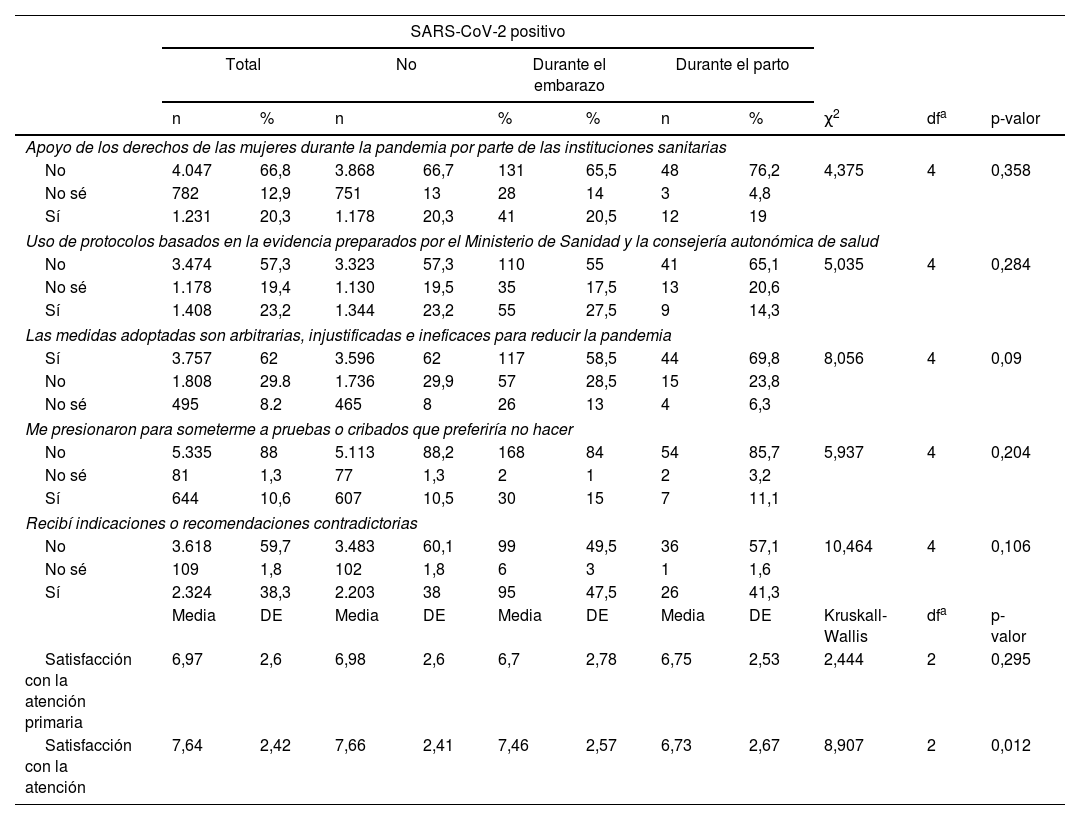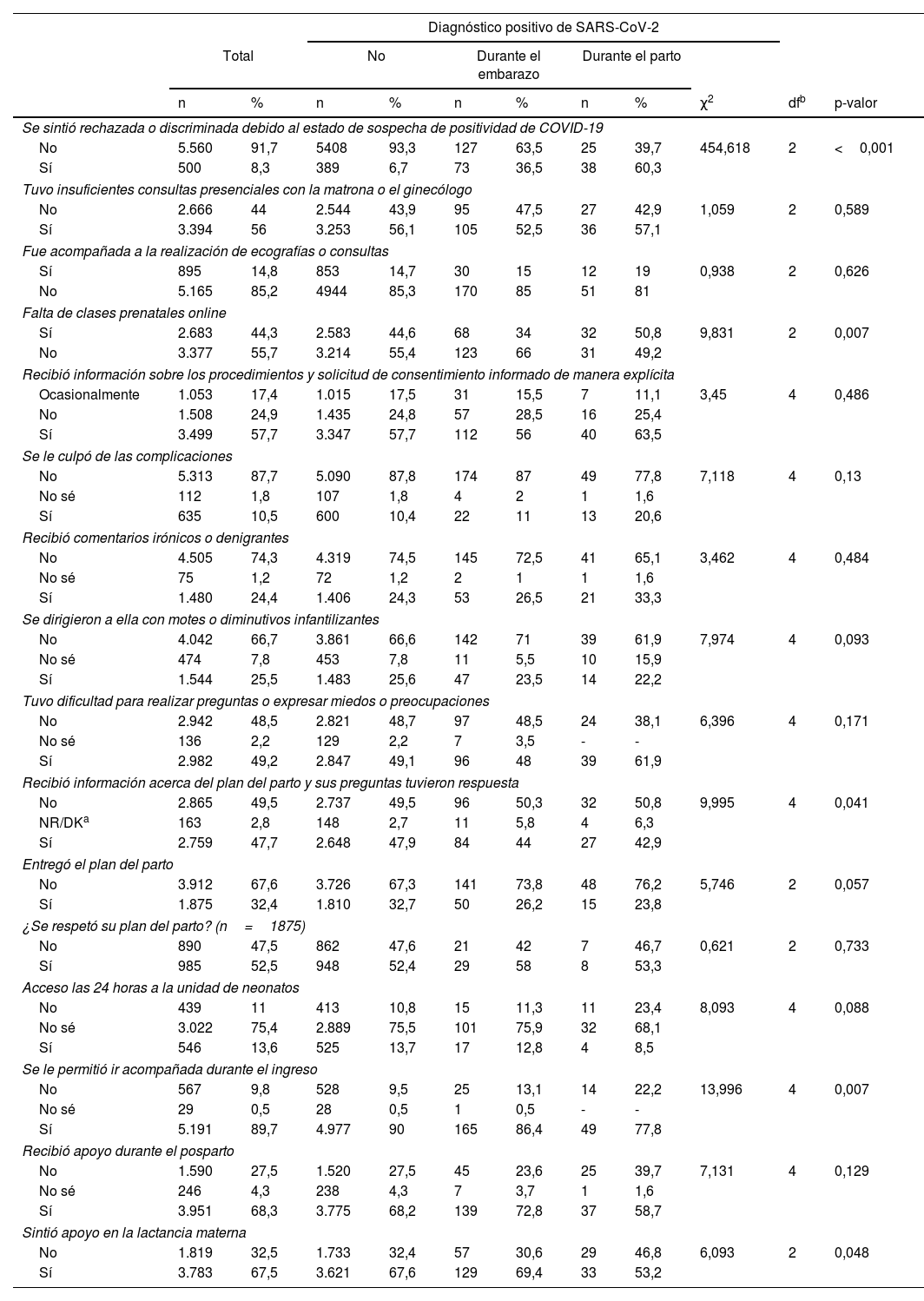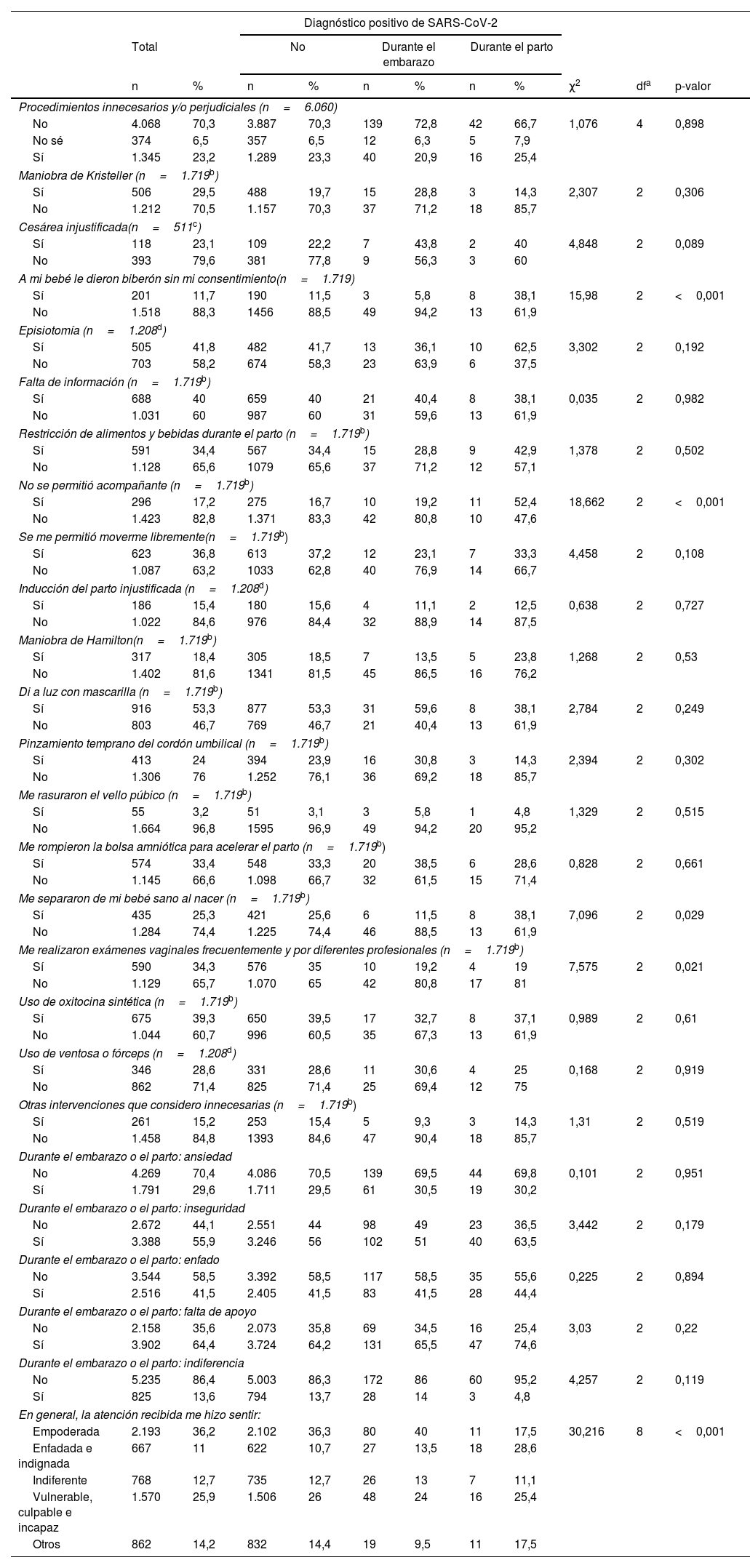Describir la percepción que tienen las mujeres sobre la violencia obstétrica, la medicalización y el intervencionismo en los partos en España durante la pandemia del SARS-CoV-2.
MétodoSe utilizó un diseño transversal. Para la recogida de datos se diseñó un cuestionario online con preguntas cerradas que fue distribuido por redes sociales. La muestra estuvo compuesta por mujeres que parieron en España desde marzo de 2020 a abril de 2021.
ResultadosLa muestra estuvo compuesta por 6.060 cuestionarios. El 62% piensa que las medidas que se tomaron son arbitrarias e ineficaces para frenar la pandemia. Las variables sensación de rechazo por sospecha de COVID-19 positiva (p<0,001), apoyo en la lactancia materna (p=0,048), ofrecer biberones sin consentimiento (p<0,001), impedir el estar acompañada (p<0,001) y separar al bebé sano al nacer (p=0,009) mostraron diferencias estadísticamente significativas en función del diagnóstico COVID-19 materno. Además, estas mujeres estuvieron menos satisfechas con su atención y se sintieron menos empoderadas. El 33,5% de las mujeres (n=2.030) afirman haber sufrido violencia obstétrica. De estas, el 67,8% (n=1.376) piensa que esta violencia obstétrica no está justificada por el contexto pandémico.
DiscusiónLa comprensión de estas vivencias en momentos pandémicos ofrece una oportunidad para poder desarrollar políticas de protección específicas para las mujeres ante futuros eventos de crisis sanitaria.
The aim of this study was to describe women's perceptions of obstetric violence, medicalisation, and interventionism at childbirth in Spain during the SARS-CoV-2 pandemic.
MethodA cross-sectional design was used. For data collection, an online questionnaire with closed questions was designed and distributed via social media. Women who gave birth between March 2020 and April 2021 in Spain were recruited.
ResultsThe sample consisted of 6,060 questionnaires. Sixty-two percent of respondents thought that the measures taken were arbitrary and ineffective in curbing the pandemic. For the following variables, statistically significant differences were found between groups related to maternal SARS-CoV-2 diagnosis: feeling rejected for suspected positive SARS-CoV-2 status (p<0.001), being encouraged to breastfeed (p=0.048), offering bottles without consent (p<0.001), not being allowed to be accompanied (p<0.001), and separating the healthy baby from the mother at birth (p=0.009). Women who tested positive were also less satisfied with their care and felt less empowered. Thirty-three point five percent of women (n=2,030) report having suffered obstetric violence. Of these, 67.8% (n=1,376) believe that such obstetric violence is not justified by the pandemic.
DiscussionUnderstanding these experiences during a pandemic provides an opportunity to develop specific protection policies for women in the event of future health crises.













